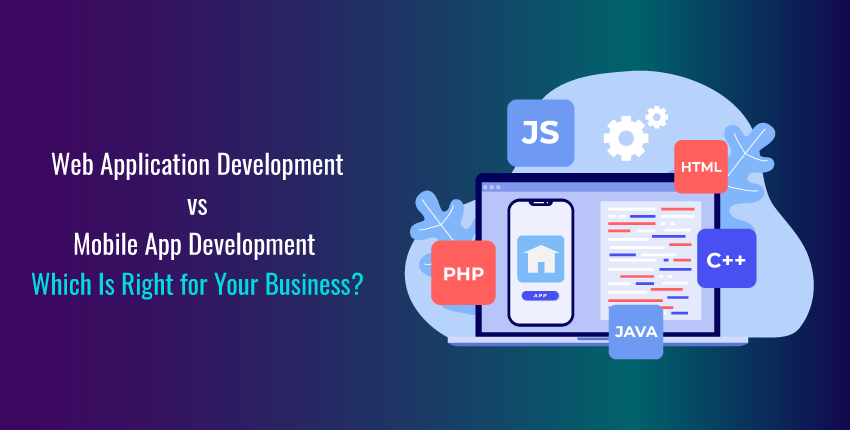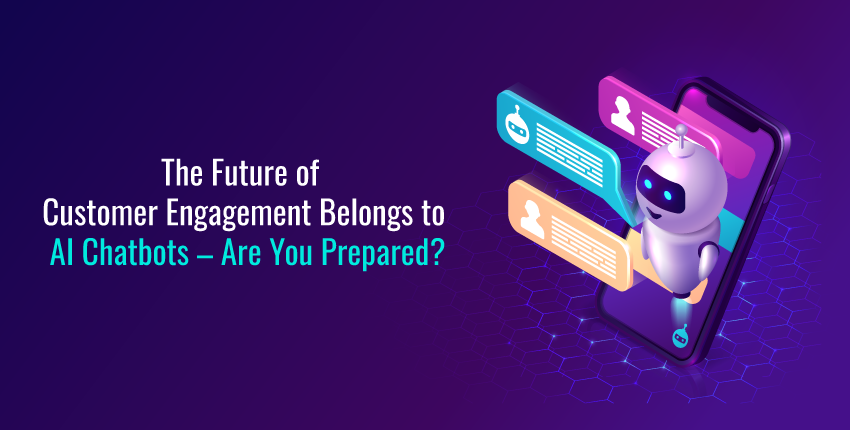Web Application Development vs. Mobile App Development: Which Is Right for Your Business?
Introduction In today’s fast-paced digital landscape, the impact of technology on business cannot be overstated. Web and app development have emerged as pivotal tools for businesses aiming to thrive in the digital age. In this comprehensive exploration, we will delve into how web development and app development can positively influence your business, compare their advantages, and offer insights into making informed decisions for your digital strategy. Web Development: A Factor of Business Development Benefits for Businesses of Web Development Web development serves as the cornerstone of a robust online presence. It empowers businesses to create user-friendly websites, engaging landing pages, and immersive web applications. These digital assets serve as virtual storefronts, offering customers an interactive and informative experience. A well-developed website can boost credibility, provide information, and facilitate e-commerce transactions, ultimately leading to increased sales and customer satisfaction. Examples of Successful Web Development Initiative sWe’ll explore real-world case studies showcasing how web development has transformed businesses across various industries. From e-commerce giants streamlining their checkout processes to educational institutions enhancing their online learning platforms, the impact of web development is palpable. Challenges and Considerations in Web Development While the benefits of web development are substantial, businesses must also navigate challenges like security concerns, browser compatibility, and evolving design trends. We’ll discuss strategies to mitigate these challenges effectively. App Development: Revolutionizing Business Engagement The Strategic Importance of App Development When businesses looking to establish a deeper link with their audience, mobile applications have evolved into important resources. Through app development, businesses can make use of the capabilities of smartphones and tablets to provide individualized experiences, streamline workflows, and increase client loyalty. Finding Business Advantages from App Development We will highlight the advantages of app development, from enhancing user experience to harnessing the mobile platform’s potential. We’ll also explore how apps can drive targeted marketing efforts, encourage user engagement, and ultimately boost revenue. Notable Examples of Successful App Development Ventures We’ll examine success stories of businesses that leveraged app development to their advantage. These examples show how user-centered design, creativity, and innovation can result in successful app-driven businesses. Web Development vs. App Development: A Comparative Analysis Understanding the Key Differences It’s important to comprehend the differences between web and app development in order to make smart decisions. We’ll dissect their unique features, usability, and suitability for various business objectives. When to Choose Web Development Over App Development In certain scenarios, web development may be the more practical choice. We’ll explore situations where businesses might prioritize web development to achieve their goals. Combining Web and App Development for Optimal Results For many businesses, a combination of web and app development offers the best of both worlds. We’ll discuss strategies for integrating these two approaches seamlessly to maximize business outcomes. The Advantages of App Development Enhanced User Experience and Engagement Apps offer a uniquely immersive user experience that is suited to the capabilities of the device. Through intuitive interfaces and interactive features, businesses can captivate users and keep them engaged. Push notifications and personalized content ensure that users stay connected and informed, enhancing brand loyalty. Leveraging Mobile Platforms for Business Success The ubiquity of smartphones makes apps a potent tool for reaching consumers anytime, anywhere. We’ll delve into how apps enable businesses to tap into the mobile ecosystem, offering convenience and accessibility that web development alone cannot match. Targeted Marketing and Customer Loyalty Apps excel in collecting user data, enabling businesses to craft targeted marketing campaigns. By analyzing user behavior and preferences, companies can deliver tailored content and offers, strengthening customer relationships and increasing conversion rates. The Advantages of Web Development Wider Reach and Accessibility A wide number of devices and browsers may access websites, ensuring that a company’s content is seen by a wider audience. Information is accessible to everyone thanks to web development, regardless of device or location. Cost-Efficiency and Scalability Web development often proves more cost-effective than app development. Businesses can reach a wide audience without the need for separate development efforts for various platforms. Additionally, web-based solutions can be easily scaled to accommodate growing user bases and evolving needs. SEO Benefits and Brand Visibility Websites are essential for search engine optimization (SEO) efforts. We’ll explore how web development strategies can improve a business’s online visibility, driving organic traffic and bolstering brand recognition. How to Decide Between Mobile App Development and Web Development? Purpose and Functionality: Determine the primary purpose of your project. If you need to provide information or services that are easily accessible and shareable, a website might be the right choice. However, if you aim for a more interactive and personalized user experience, a mobile app could be more suitable. Target Audience: Understanding your target audience is paramount. If your audience primarily uses mobile devices, a mobile app may offer a more seamless and engaging experience. On the other hand, if your audience is more likely to access your content on a desktop, a website might be the better option. Budget and Resources: Consider your budget constraints and the resources available. Generally, web development tends to be more cost-effective compared to mobile app development, as it doesn’t require separate development for various platforms. Apps, however, can be more expensive due to the need for development on both Android and iOS platforms. Functionality Across Devices: If it’s critical that your platform works consistently across various devices (including smartphones, tablets, and desktops), a website is typically the better choice. It ensures a uniform experience regardless of the device being used. Offline Functionality: If your project requires functionality without an internet connection, a mobile app is the way to go. Apps have the capability to store data locally, allowing users to access certain features even when offline. Speed and Performance: Mobile apps are generally faster and more responsive than websites, as they store data locally. This can significantly enhance the user experience, especially for tasks that require real-time updates or complex interactions. Maintenance and Updates: Websites typically have easier and faster update processes. App updates, especially for both Android and


